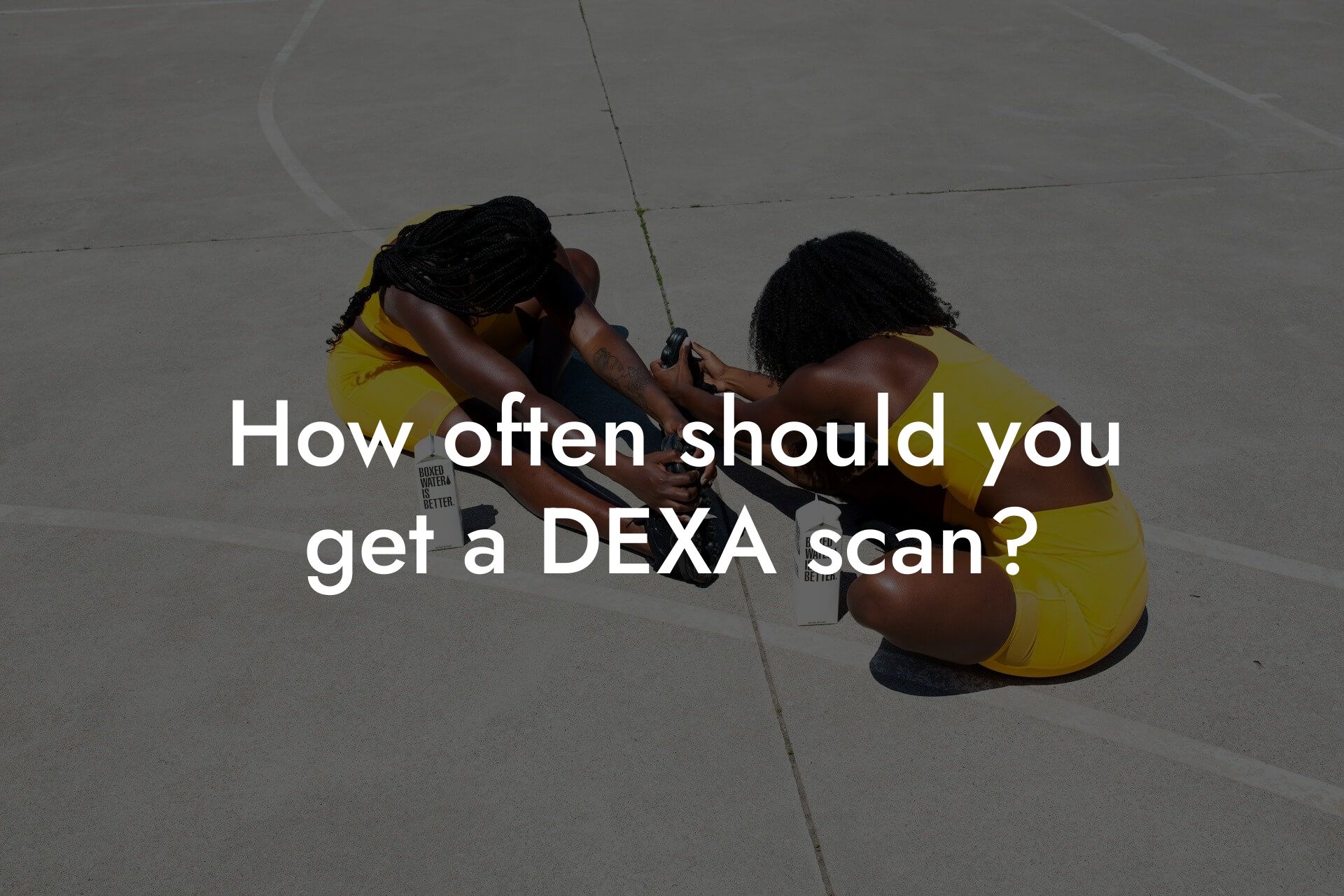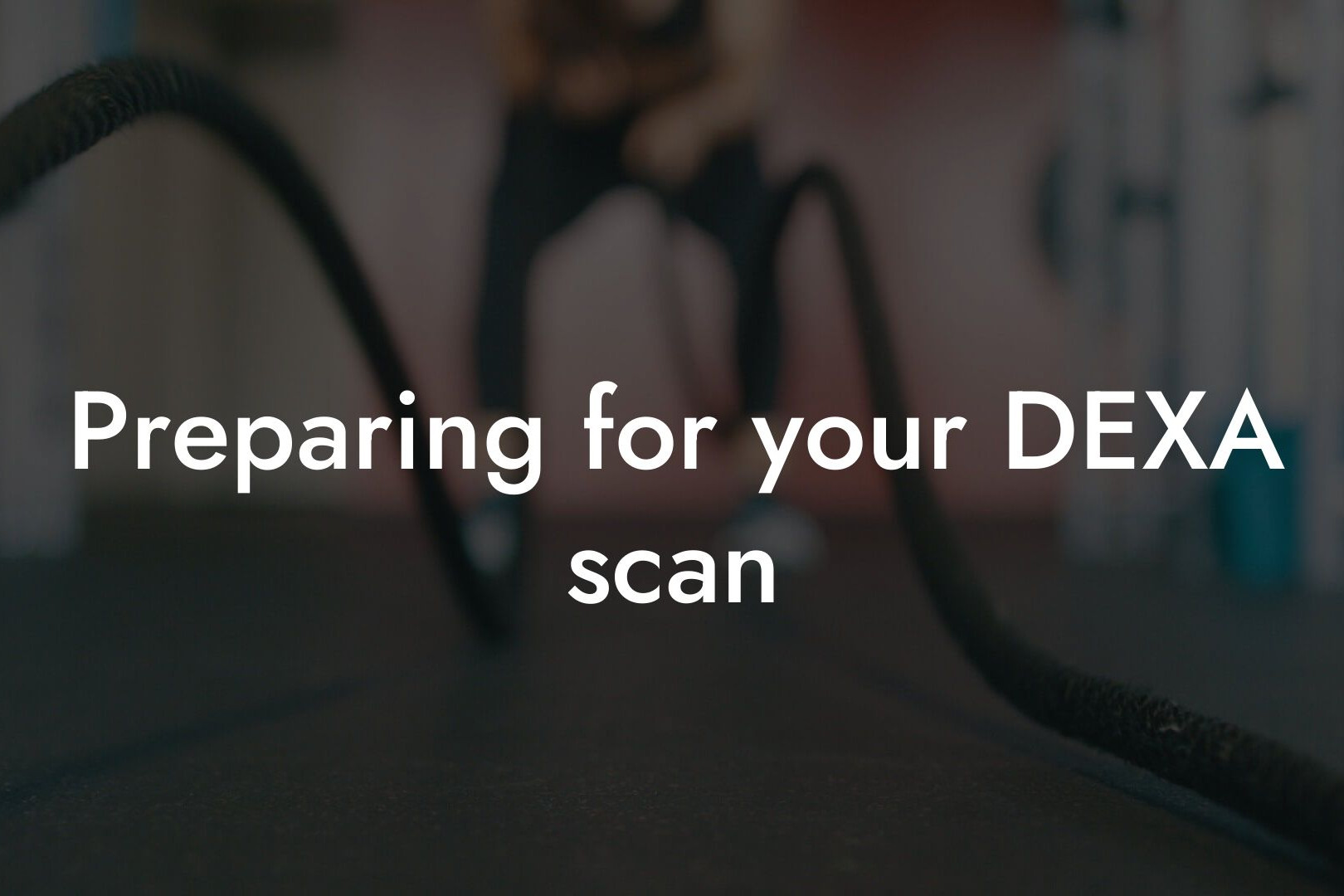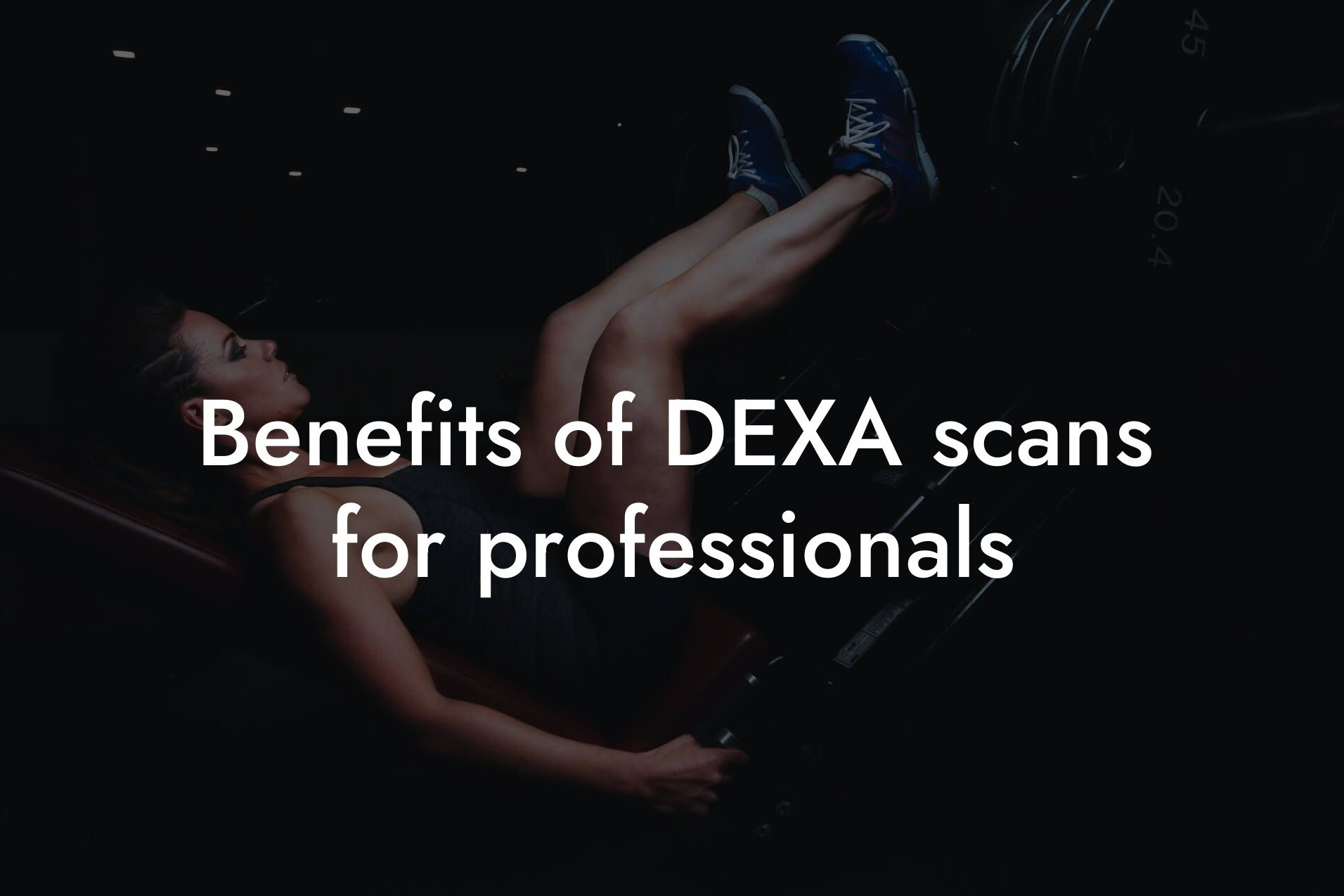What is a DEXA Scan?
A DEXA (Dual-Energy X-ray Absorptiometry) scan is a non-invasive medical test that measures bone density and body composition. It is commonly used to diagnose osteoporosis, a condition characterized by brittle and fragile bones. However, DEXA scans can also provide valuable information about body fat percentage, lean mass, and muscle distribution. At Tano Performance Group, we use DEXA machines to provide high-earning professionals with a comprehensive body assessment, helping them optimize their physical appearance and physique.
Table of Contents
How Does a DEXA Scan Work?
A DEXA scan uses low-level X-rays to measure the density of bones and soft tissues in the body. During the scan, you will lie on a table while a machine arm passes over your body, emitting X-rays at two different energy levels. The machine then measures the absorption of these X-rays by different tissues, providing a detailed picture of your body composition. The entire process typically takes around 10-15 minutes and is completely painless.
What Can a DEXA Scan Measure?
A DEXA scan can provide a wealth of information about your body, including:
- Bone density: A DEXA scan can measure bone density in various parts of the body, such as the hips, spine, and wrists.
- Body fat percentage: DEXA scans can accurately measure body fat percentage, providing a more accurate assessment than traditional methods like BMI.
- Lean mass: A DEXA scan can measure lean mass, which includes muscle, bone, and water.
- Muscle distribution: DEXA scans can provide information about muscle distribution throughout the body, helping identify areas for improvement.
How Much Does a DEXA Scan Cost?
The cost of a DEXA scan can vary depending on several factors, including:
- Location: DEXA scan costs can differ depending on the location, with urban areas typically having higher prices than rural areas.
- Provider: The cost of a DEXA scan can vary depending on the provider, with medical facilities and private clinics charging different rates.
- Insurance coverage: Some insurance plans may cover part or all of the cost of a DEXA scan, while others may not.
On average, the cost of a DEXA scan can range from $100 to $300. However, at Tano Performance Group, we offer comprehensive body assessments using DEXA technology at a competitive price point, providing high-earning professionals with valuable insights into their body composition.
Is a DEXA Scan Worth the Cost?
For high-earning professionals interested in optimizing their physical appearance and physique, a DEXA scan can be a valuable investment. The detailed information provided by a DEXA scan can help:
- Identify areas for improvement: A DEXA scan can highlight areas of the body that require attention, such as low bone density or high body fat percentage.
- Track progress: Regular DEXA scans can track changes in body composition over time, helping you monitor the effectiveness of your fitness and nutrition plan.
- Optimize training and nutrition: A DEXA scan can provide valuable insights into muscle distribution and body fat percentage, helping you tailor your training and nutrition plan to achieve your goals.
What Are the Benefits of a DEXA Scan?
In addition to providing valuable information about body composition, a DEXA scan offers several benefits, including:
- Early detection of osteoporosis: A DEXA scan can detect osteoporosis in its early stages, allowing for prompt treatment and prevention of fractures.
- Improved athletic performance: A DEXA scan can help athletes optimize their body composition, leading to improved performance and reduced risk of injury.
- Enhanced self-awareness: A DEXA scan can provide a detailed understanding of your body, helping you make informed decisions about your health and wellness.
How Often Should You Get a DEXA Scan?
The frequency of DEXA scans depends on individual circumstances and goals. For high-earning professionals looking to optimize their physical appearance and physique, we recommend:
- Initial scan: Get a baseline DEXA scan to understand your current body composition and identify areas for improvement.
- Follow-up scans: Schedule follow-up scans every 6-12 months to track progress and make adjustments to your fitness and nutrition plan as needed.
A DEXA scan is a valuable tool for high-earning professionals looking to optimize their physical appearance and physique. While the cost of a DEXA scan may seem prohibitive, the benefits of detailed body composition analysis, early detection of osteoporosis, and improved athletic performance make it a worthwhile investment. At Tano Performance Group, we are committed to providing comprehensive body assessments using DEXA technology, helping high-earning professionals take their business to the next level.
Frequently Asked Questions
What is a DEXA scan?
A DEXA (Dual-Energy X-ray Absorptiometry) scan is a non-invasive medical test that measures bone density, body composition, and fat distribution. It's commonly used to diagnose osteoporosis, monitor bone health, and track body fat percentage.
How does a DEXA scan work?
A DEXA scan uses low-level X-rays to measure the density of bones and soft tissue. The test involves lying on a flat table, and a scanner arm moves over the body, emitting X-rays that are absorbed by the bones and soft tissue. The absorbed X-rays are then measured to calculate bone density and body composition.
What does a DEXA scan measure?
A DEXA scan measures bone density, lean body mass, fat mass, and percentage of body fat. It also provides a detailed breakdown of fat distribution, including visceral fat, which is the fat around organs in the abdominal cavity.
Why is it important to measure bone density?
Measuring bone density is important because it can help identify osteoporosis, a condition characterized by brittle and porous bones. Osteoporosis can increase the risk of fractures, which can be debilitating and even life-threatening. Early detection and treatment can help prevent or slow bone loss.
How accurate is a DEXA scan?
DEXA scans are highly accurate, with a margin of error of around 1-2%. They are considered the gold standard for measuring bone density and body composition.
Is a DEXA scan safe?
Yes, DEXA scans are safe and painless. They use very low levels of radiation, equivalent to a few days of background radiation from the environment. The test is also non-invasive, meaning it doesn't require any injections, surgery, or other invasive procedures.
How long does a DEXA scan take?
A DEXA scan typically takes around 10-15 minutes to complete. However, the entire process, including preparation and consultation with a healthcare professional, may take around 30-60 minutes.
How often should I get a DEXA scan?
The frequency of DEXA scans depends on individual circumstances. For healthy individuals, a scan every 2-3 years may be sufficient. However, for those with osteoporosis or other health conditions, more frequent scans may be necessary to monitor treatment effectiveness.
What is the cost of a DEXA scan?
The cost of a DEXA scan varies depending on the location, healthcare provider, and insurance coverage. On average, the cost ranges from $100 to $300. Some insurance plans may cover part or all of the cost, so it's essential to check with your provider.
Is a DEXA scan worth the cost?
For individuals concerned about their bone health, body composition, or physique, a DEXA scan can be a valuable investment. It provides accurate and actionable information that can help you make informed decisions about your health and fitness.
Can I get a DEXA scan without a doctor's referral?
In some cases, you may be able to get a DEXA scan without a doctor's referral. However, it's recommended to consult with a healthcare professional to determine if a scan is necessary and to discuss the results.
How do I prepare for a DEXA scan?
To prepare for a DEXA scan, wear loose, comfortable clothing without metal fasteners or zippers. Avoid wearing jewelry or glasses, and remove any metal objects from your body. You may also be asked to avoid calcium supplements or contrast agents for a few days before the test.
What should I expect during a DEXA scan?
During a DEXA scan, you'll lie on a flat table, and a scanner arm will move over your body. You'll be asked to hold still and breathe normally. The test is painless and non-invasive.
How long does it take to get the results of a DEXA scan?
The results of a DEXA scan are typically available within a few days to a week. Your healthcare provider will discuss the results with you and provide guidance on how to interpret them.
What do the results of a DEXA scan mean?
The results of a DEXA scan provide a detailed breakdown of bone density, lean body mass, fat mass, and percentage of body fat. The results are usually presented in a report that includes graphs and charts to help you understand the data.
How can I use the results of a DEXA scan to improve my health?
The results of a DEXA scan can help you identify areas for improvement, such as increasing bone density or reducing body fat percentage. You can use this information to develop a personalized fitness and nutrition plan, set realistic goals, and track your progress over time.
Can a DEXA scan help me achieve my fitness goals?
Yes, a DEXA scan can help you achieve your fitness goals by providing accurate and actionable information about your body composition. This information can help you tailor your workout routine, nutrition plan, and supplementation strategy to optimize your results.
How does a DEXA scan compare to other body composition tests?
DEXA scans are considered the gold standard for measuring body composition due to their high accuracy and precision. Other tests, such as bioelectrical impedance analysis (BIA) or skinfold measurements, may not provide the same level of accuracy or detail.
Can I get a DEXA scan if I'm pregnant or breastfeeding?
It's generally recommended to avoid DEXA scans during pregnancy or breastfeeding due to the small amount of radiation involved. However, your healthcare provider may recommend a scan in certain circumstances, such as if you have a high risk of osteoporosis.
Can children get a DEXA scan?
Yes, children can get a DEXA scan, but it's typically recommended for those with a high risk of osteoporosis or other health conditions. The scan can help identify potential issues early on and guide treatment decisions.
How can I find a provider that offers DEXA scans?
You can find a provider that offers DEXA scans by asking your healthcare provider for a referral, searching online, or checking with local hospitals or medical imaging centers.
What should I look for in a DEXA scan provider?
When selecting a DEXA scan provider, look for a facility with experienced technicians, a low-radiation scanner, and a healthcare professional to interpret the results and provide guidance.
Here are some related articles you might love...
- How often should you get a DEXA scan?
- Preparing for your DEXA scan
- Benefits of DEXA scans for professionals
- DEXA scans for athletes vs general population
- What is a DEXA scan?
- Understanding DEXA scan results
- How DEXA scans measure body fat
- DEXA scan vs other body composition tests (e.g., BMI, calipers)
- Accuracy of DEXA scans
Zak Faulkner
Zak Faulkner is a leading authority in the realm of physical health and body composition analysis, with over 15 years of experience helping professionals optimise their fitness and well-being. As one the experts behind Tano Performance Group, Zak has dedicated his career to providing in-depth, science-backed insights that empower clients to elevate their physical performance and overall health.
With extensive knowledge of DEXA technology, Zak specializes in delivering comprehensive body assessments that offer precise data on body fat, muscle mass, bone density, and overall physique. His expertise enables individuals to make informed decisions and achieve their fitness goals with accuracy and confidence. Zak’s approach is rooted in a deep understanding of human physiology, combined with a passion for helping clients unlock their full potential through personalised strategies.
Over the years, Zak has earned a reputation for his commitment to excellence, precision, and client-focused service. His guidance is trusted by top professionals who demand the best when it comes to their health. Whether advising on fitness programs, nutritional strategies, or long-term wellness plans, Zak Faulkner’s insights are a valuable resource for anyone serious about taking their health and fitness to the next level.
At Tano Performance Group, Zak continues to lead our Content Team revolutionising how professionals approach their physical health, offering unparalleled expertise that drives real results.




